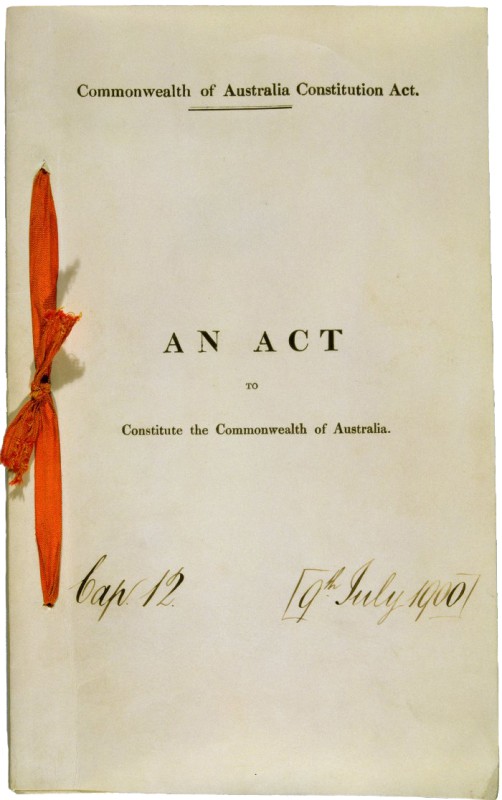If the Constitution was written in 1901, how can it give the government the power to make laws about modern inventions like the internet?

Commonwealth of Australia Constitution Act, 1900: Original Public Record Copy (1900).
Parliament House Art Collection, Art Services Parliament House
Commonwealth of Australia Constitution Act, 1900: Original Public Record Copy (1900).

Parliament House Art Collection, Art Services Parliament House
Description
This image shows the front page of the original public record copy of the Commonwealth of Australia Constitution Act 1900.
Permission for publication must be sought from Parliament House Art Collection. Contact DPS Art Services, phone: 02 62775034 or 02 62775123
Thanks for asking, Harald. This topic has been considered and ruled on by the High Court of Australia.
Section 51(v) of the Australian Constitution gives the Australian Parliament the power to make laws about ‘postal, telegraphic, telephonic, and other like services’. Many other communication services, including radio, television and the internet are not specifically listed in the Constitution as they weren’t invented when the Constitution was written!
In the Radio Licence Case of 1935, the High Court of Australia found that the Constitution gives the Parliament the power to make laws about all services which send communications over a distance by electronic means. Section 51(v) has since been interpreted to allow the Parliament to make laws about new communication services including the internet.
The Constitution does not say how communication services will be provided, only that the Parliament can make laws about these areas. The details of how these services are provided to Australians are contained in the various communications laws passed by the Parliament. The Federal Register of Legislation website lists all laws passed by the Parliament.